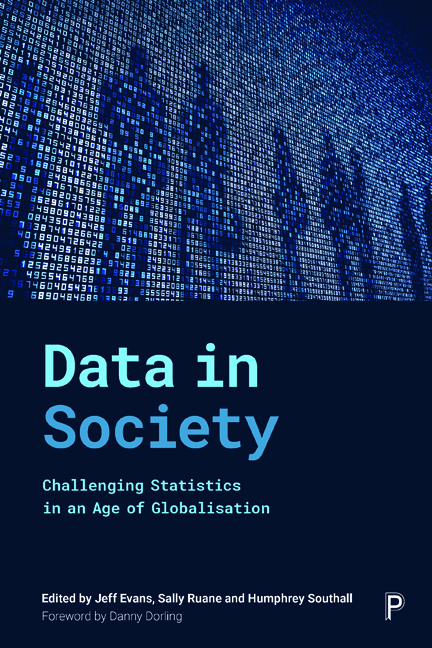Book contents
- Frontmatter
- Contents
- List of figures, tables and boxes
- Notes on contributors
- Foreword
- Preface
- General introduction
- Part I How data are changing
- Part II Counting in a globalised world
- Part III Statistics and the changing role of the state
- Part IV Economic life
- Part V Inequalities in health and wellbeing
- Part VI Advancing social progress through critical statistical literacy
- Epilogue: progressive ways ahead
- Index
1 - Statistical work: the changing occupational landscape
Published online by Cambridge University Press: 30 April 2022
- Frontmatter
- Contents
- List of figures, tables and boxes
- Notes on contributors
- Foreword
- Preface
- General introduction
- Part I How data are changing
- Part II Counting in a globalised world
- Part III Statistics and the changing role of the state
- Part IV Economic life
- Part V Inequalities in health and wellbeing
- Part VI Advancing social progress through critical statistical literacy
- Epilogue: progressive ways ahead
- Index
Summary
Introduction
It is often claimed that the great British writer H.G. Wells wrote: ‘Statistical thinking will one day be as necessary for efficient citizenship as the ability to read and write!’ – but he didn’t. This is a paraphrase by the statistician Samuel Wilks (1952) of something much wordier that Wells wrote in 1903. If Wells and Wilks were right that statistical thinking would become far more necessary for all, surely the way that statistical work is carried out will have changed accordingly since their time. In this chapter, I explore how statistical work is done and how the nature of the work and the workers has changed and is changing. The chapter concentrates on the position in the UK, but most of the ideas apply in other Western societies.
Since the early nineteenth century, when the term ‘statistics’ first came into regular use, statistical thinking has expanded far beyond economics, society and government to become routine across most areas of human and scientific activity. I shall be interpreting statistical work widely, to deal with any type of ‘numerical facts’, to cover choices of which numbers to collect or construct, and how to present them and make decisions that are informed by them.
Here I am presenting a narrative on these questions that is partial, in both senses of the word. Much statistical work is concerned with producing and presenting a coherent and persuasive narrative; this contrasts with an image of numerical data as being ‘hard facts’ that themselves define what is going on. But it is true nevertheless. The process is analogous to what Wilks did in boiling Wells’ 100-word sentence about statistics and citizenship down to just 18 words; Wilks gets his point across effectively, but at the expense of leaving out some of the things Wells said and emphasising others. Choice of a statistical narrative can do just the same. Mary Poovey (1998) has written about the way in which numerical ‘facts’ themselves have been developed to support the narratives of changing ways of thinking, and, more recently, journalists and statisticians have written about data, facts and narrative (Blastland and Spiegelhalter, 2013; Harford, 2017).
- Type
- Chapter
- Information
- Data in SocietyChallenging Statistics in an Age of Globalisation, pp. 13 - 22Publisher: Bristol University PressPrint publication year: 2019



